Huel vs Shakeology
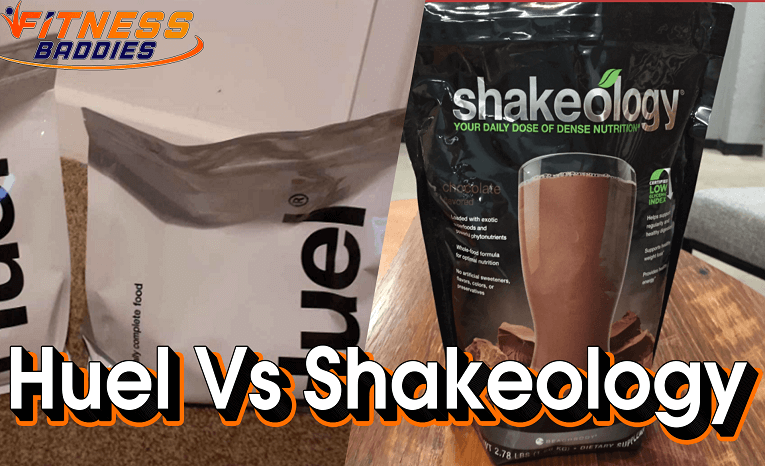
It never ceases to amaze me how quickly the meal replacement market has exploded. Just a decade ago there were one or two products at best. Even those tasted like dung mixed in horse piss. Well, most of them did anyway.
But Shakeology managed to stand out from the crowd. It tasted reasonably good. It was not as thick as molasses. More importantly, it was using plant protein years before it turned into this buzzword, that’s pasted on product labels these days.
However, almost 13-years have passed since Shakeology was launched. I will leave a link below for those of you that want to see the flavors they offer first before reading my daily use experience, and review of it. Oh and well, 2 much better alternatives to Shakeology and Huel both.
Check out Their Flavors
- See Shakeology Flavors by clicking here
- See My, Much Preferred, Better Tasting, Much Cheaper, Option from Lyfe Fuel by clicking here.
- See My 2nd favorite, which is still a Much Better Meal Replacement Option from Kachava by clicking here.
Post 2010, there has been a deluge of meal replacement brands in the market. Most of them boast of cutting edge research and a bevy of nutritional benefits that make them appear like the holy grail of nutrition.
One such brand is Huel. Ever since its inception, Huel has managed to outperform a lot of the competition with its nutrition-first branding. Most brands are guilty of harping on ‘convenience’.
Aren’t you curious to know how Shakeology manages to fare in the face of the fancier competition?
That’s what this article is about. Having used both these products and many more, I am going to pit them against each other and give you the lowdown of what works and what doesn’t. To maintain objectivity, I spent 6-weeks trying out each product. (Full Disclosure – I had used Shakeology in 2008 & 2011, when I tried out Power 90, P90X & P90X2)
This is what I found.
Quick Update: A Better Alternative to Both
Before I jump head over heels into the Huel vs. Shakeology war, let me take a brief moment to speak about a third brand that I personally feel, blows both these brands out of the water. It’s called Kachava. Far better buy than both of these as can be seen in this Kachava review. More expensive does not always mean better.
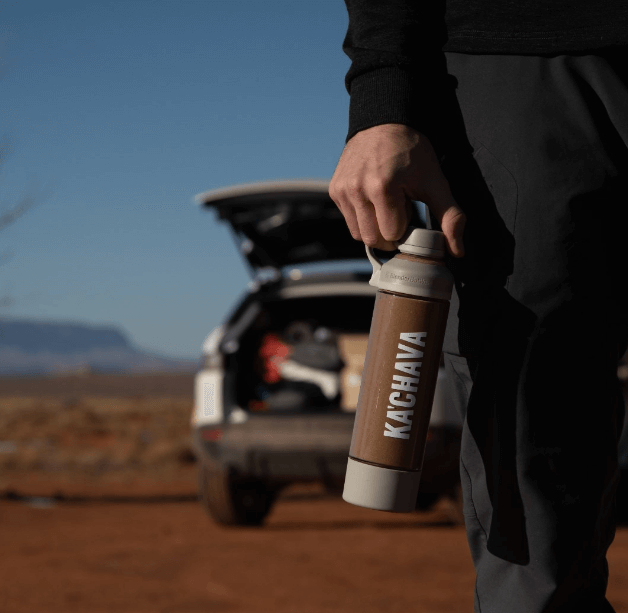
I am not sure if you’ve heard of Kachava. But it’s become huge in the last few years.
For the uninitiated, Kachava is a vegan meal-replacement powder that boasts of 70+ power-packed ingredients in every meal. That includes greens, adaptogens, super foods, herbs, fiber, probiotics, omega-3, fruits & antioxidants. That’s obviously not the entire list. But it should give you a gist about the kind of nutritional profile it boasts of....
Let's just say, it has just the kind of stuff you need to have your muscles firing on all cylinders when you're doing essential fitness exercises or just going about your daily chores
....It has 25 grams of protein, more than both the other shakes that I mentioned earlier. More fiber & more vitamins too.
Normally, I’d expect Nutrient dense shakes such as Kachava to taste hideous. But that’s what makes Kachava good in more ways than one. It tastes exactly like one of my favorite chocolate milk brands in NY.
Now that we have that out of the way, let’s compare Huel & Shakeology.
What is Huel?
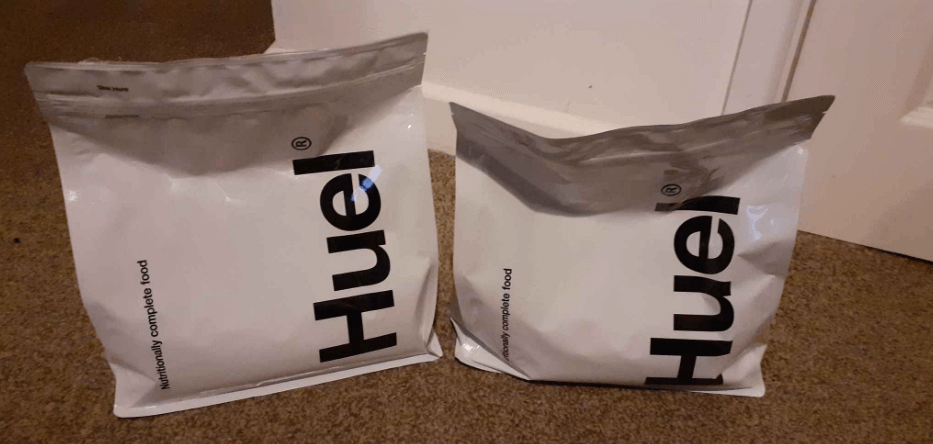
In an overcrowded meal replacement market, you need to have a USP to stand out from the rest of the competition.
Huel, the UK-based brand’s USP is that it does not talk about how meals are a waste of time, like some other brands do.
Instead, it treats its shakes seriously. The branding is centered on how Huel is real food.
The fact that you can tear open a packet in the back of your car and mix it with juice or water with one hand, while you speak on the phone with the other, is just an added benefit.
The term ‘Huel’ itself is a portmanteau of the words Human and Fuel.
In a nutshell, Huel is real whole food that you can gulp down. But it’s not junk. It’s quality nutrition that will fuel your day.
Their product range is extensive and includes meal replacement powders, liquid meals that you can just gulp, ready to eat bars and breakfast cereals. If you crave some extra flavoring in any of these, you can also buy one of their flavor boost packets and just sprinkle it on top.
What Is Their Mission?
Huel was designed to provide UK’s population with a healthier alternative to the copious amount of junk they consume on a daily basis. One of the reasons that people often mention for eating takeaway meals is lack of time. In 2021, nobody really has the time to cook a four-course healthy meal every day.
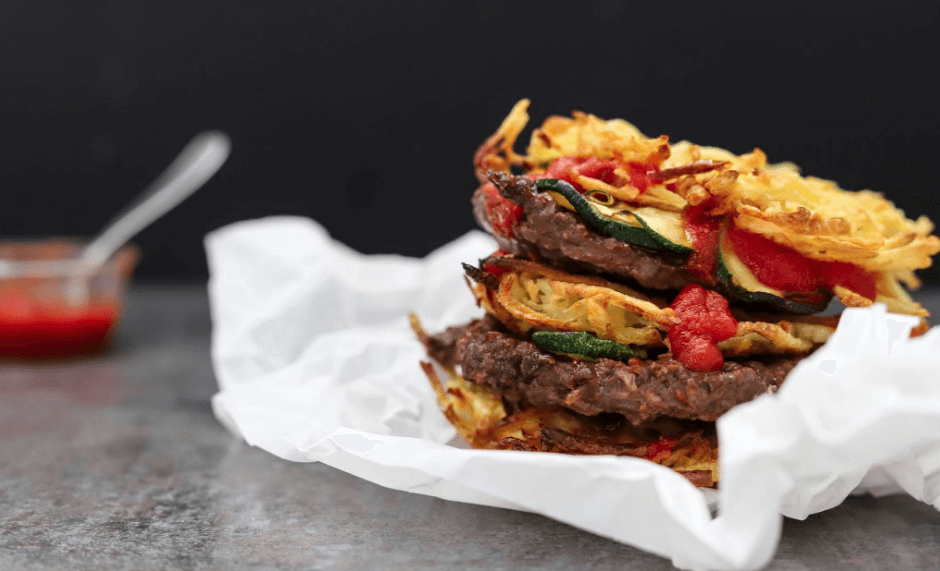
Huel aims to fill that void with its shakes. You can swap two meals of the day with one of their meal replacements. Voila! You get much better nutrition than what you’d have gotten otherwise, it doesn’t eat into your time and it’s probably cheaper too.
In very little time, Huel’s popularity skyrocketed and it expanded into international markets. The United States, with its massive population of junk-eating, obese individuals welcomed it with open arms. Well, at least most of the folks who are keen on their diet and weight did. It offers a much-needed pick me up when you're dieting or fasting, or for those looking to lose weight.
Is Huel Truly Good for You?
Marketing hype apart, how good is Huel for you if you were to consume one or two of its shakes every day?
Let’s find out.
Huel Nutrition Facts
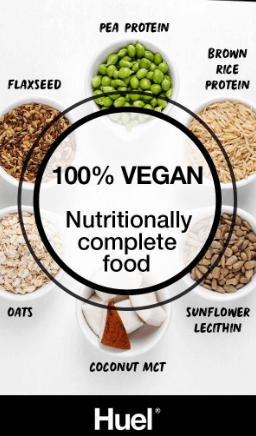
Huel is a complete plant-based meal that has a very balanced macronutrient profile. It’s 30% protein, 30% fats and 37% carbs. The remaining 3% is fiber. So, it’s clearly aimed at the average user who’d like to make healthier dietary choices without fussing over meal prep.
If you are a weight watcher or an athlete, there’s Huel Black, a specialized formula with more protein than the regular version. Huel also offers a meal replacement bar and breakfast cereals. I have focused this review on Huel’s meal replacement powder.
- Carbohydrates – The 37% of Carbs in Huel are sourced from finely milled oats and tapioca. I am fine with oats. But Tapioca is not an ingredient that I’d like to see in a meal replacement powder. For one, it’s pure carbs with no other nutritional perks. Secondly, there have been occasional instances where it has been linked with cyanogenetic glycosides.
- Fat – The Fat in Huel is sourced from Flaxseed, Sunflower, and Coconut. No complaints there. That’s a healthy blend with enough MCTs and Omegas.
- Protein – The 29 grams of Protein in Huel comes from a blend of pea protein, oats, brown rice protein, flaxseed, and MCT. It has all essential amino acids. But it’s not the best plant protein blend out there. Brown Rice in particular, is very low in lysine.
Other than this, it contains phyto-nutrients, probiotics and Kombucha and a bunch of Vitamins & Minerals for the micronutrient profile.
While it’s often made to sound like the next best thing out there, I didn’t find Huel’s ingredient list worth the hype.
When did the hype around Huel start and what fueled it?
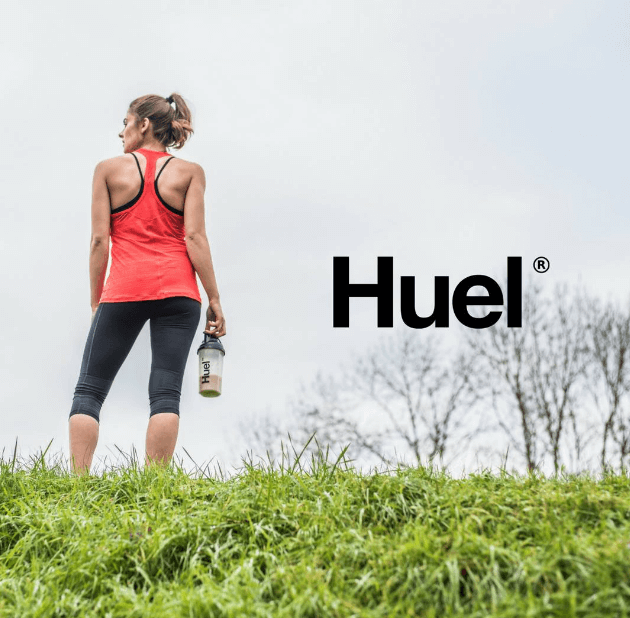
Huel was founded by Julian Hearn, an entrepreneur who had earlier set up Mash up Media, a brand that was raking £2.5 million profits a year when it was sold to Internet Brands in 2011.
This was the time when Soylent was ruling over the meal replacement market in the United States. But it was unavailable in the United Kingdom. Ordering Soylent from the US was ridiculously expensive.
The smart marketer that he was, Julian spotted this virgin niche for a UK-made meal replacement powder. Two years later, he launched Huel. Almost instantly, the brand took off.
The way I see it, he didn’t even have to put in a lot of effort to promote Huel. Not that he didn’t. Huel was promoted to the moon. But the point that I am trying to make is that this was a pre-existing market with zero competition. All he had to do was tick a few boxes and it was there for the taking.
To give the guy his due credit, he has constantly worked on improving the formula. He has launched newer products. He introduced a US version with different ingredients.
What is Shakeology?
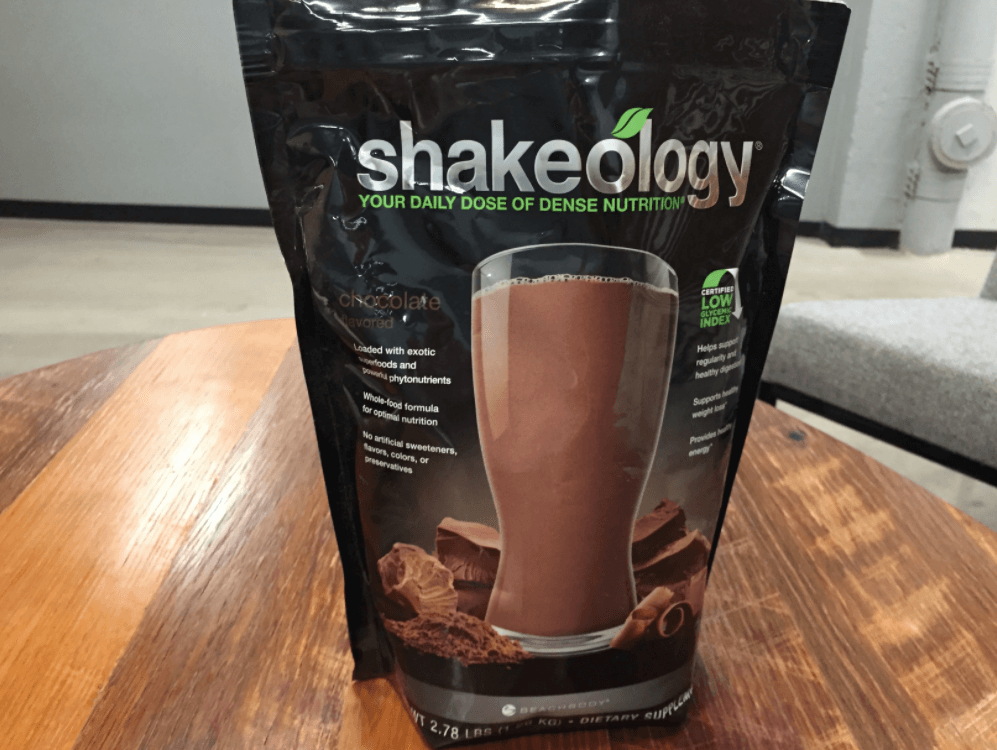
Shakeology is a Beachbody’s Official Meal Replacement Shake. I am pretty sure each one of us has seen Beachbody’s Infomercial-styled advertisements. They are one of the most successful wellness brands in the world.
Check their latest sale that they have going on right now
One of the primary reasons for their success, apart from the work-at-home videos of course, has been Shakeology.
Shakeology was developed by Carl Daikeler, one of the founders of the company and his wife Isabelle in 2007. While the original idea was to upsell a meal replacement drink along with their videos which were a rage, Shakeology quickly became their #1 seller.
There’s good reason too. As I said at the onset, the meal replacement market was dominated by sludgy-goop sold in fancy looking packets. Shakeology tasted like a million bucks in comparison. To top it off, they really managed to cram a whole bunch of nutrients into each shake - much to the delight of fitness buffs who are either into heavy weight lifting.
There’s 60+ to be more precise, and that's no mean feat considering that this shake still strikes the right balance between all this and taste.
What Is Their Mission?
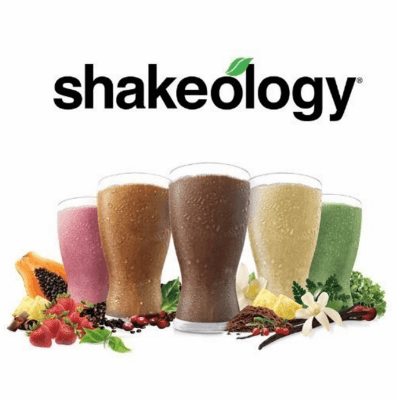
When Beachbody started off with their fitness video-based programs, they had no idea that they were going to venture into the meal replacement business. But their programs were so demanding physically, that it made sense to offer a product that could match the unique nutritional requirements.
The checklist was pretty simple. They needed a product that was healthy, plant-based, had no junk, could help their clients lose weight and maintain muscle, and had a decent macronutrient profile.
Since then, they have constantly improved on the shake, tweaking the ingredients, swapping suppliers and even conducting a full-blown clinical study. The onus has shifted to wellness from weight loss and it’s a step in the right direction.
Shakeology is different from most run-of-the-mill meal replacements in the market. That’s because it’s not aimed at the hustling wall-street executive who has no time to cook a meal. Instead, it’s aimed at the new age individual who likes to stay fit 24/7.
To this end, the shake curbs hunger pangs, it’s pretty low in calories and most importantly, tastes delicious.
Shakeology Nutrition Facts
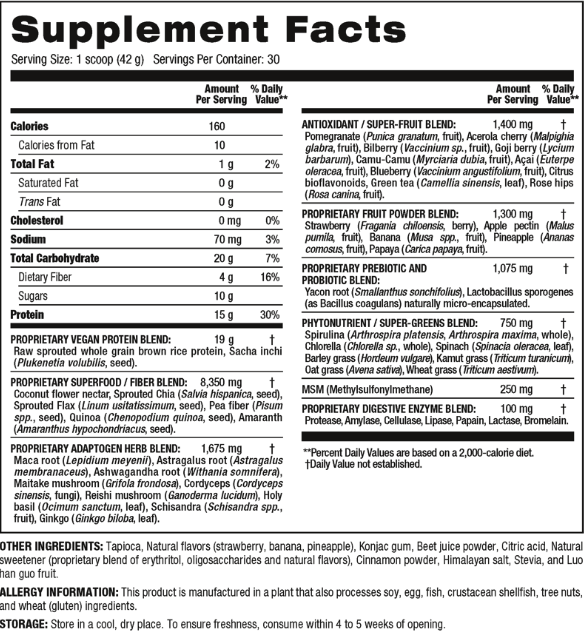
Shakeology is one of the most nutrient-dense meal replacement shakes that you’ll ever come across. There are 60+ ingredients in it that include super fruits, antioxidants, prebiotics, probiotics, Omega Fatty Acids, Super greens, adaptogens and micronutrients.
Each shake is 160-calories with 17 grams of Protein, 18 grams of carbohydrates, & 6 grams of dietary fiber.
- Carbs –Shakeology’s carbohydrates are sourced from a blend of brown rice, Quinoa, Flax seeds and Peas. More importantly, the bulk of it is complex carbs with only a very little amount of simple, fast-absorbing carbs. This is what makes Shakeology so low on the glycemic index. In a nutshell, it will not trigger an insulin spike, unlike something like Tapioca which is a simple starch.
- Protein – Shakeology has a superior protein blend as compared to Huel. It’s a blend of Pea Protein, Flax, Brown Rice, & Quinoa for the plant-based formulas. You have the option to select a Whey-based formula too, if you are not vegan. Some people get thrown off by the 17 grams that it contains. But when it comes to protein, its quality over quantity.
- Fats–There’s just 2 grams of Fat in each Shakeology meal. So, it’s protein first, followed by carbs and lastly by fat.
I really like their super fruit/antioxidant blend that contains Camu-Camu, Acerola Cherry, Blueberry, Bilberry, Goji Berry, Luo Han Guo, Pomegranate, Rose Hips & Vitamins. That's why I used it when I wanted to test if 2 protein shakes a day and one meal can help with weight loss.
Ditto with the super greens that include Chloeralla, Spinach & Kale.
What Are Customers Saying?
The overall customer reviews for both Huel& Shakeology have largely been positive.
You are likely to find a lot more Shakeology reviews on the internet because it’s been around for 8 more years. But that can also work against it, given that customers have had a lot more time to review the shakes. Generally, any health supplement that has been around for more than a decade tends to have at least 30% negative reviews.
Shakeology has a 98% positive customer rating.
Huel
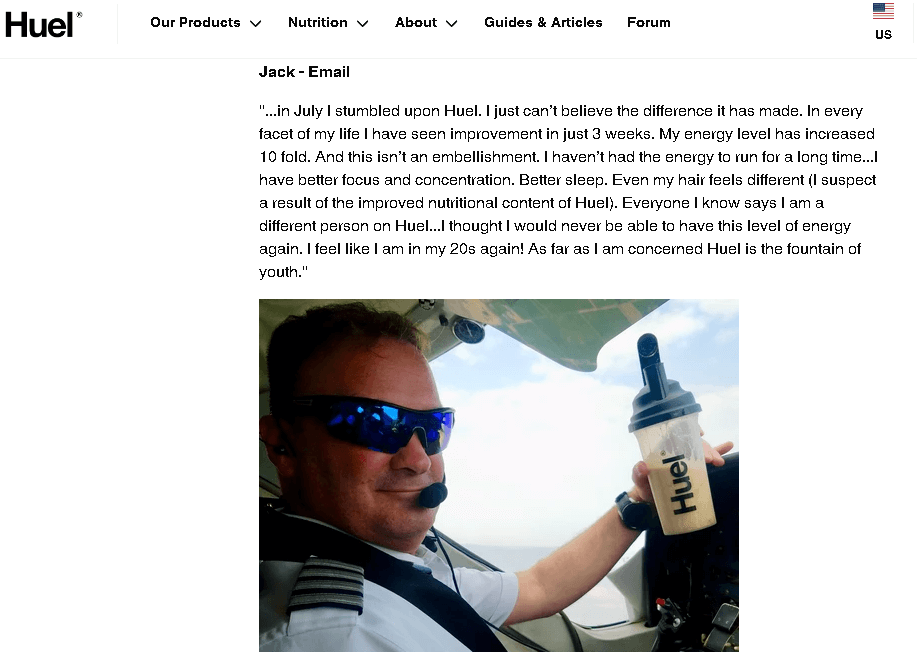
Huel’s reviews were extremely positive when they started off. But as time progressed, their reviews have started to look more and more ordinary. Most of the complaints are about the taste. There’s one Wired Review that calls it ‘Sludge’ and even goes to the extent of saying that it’s managing to grow despite ‘questionable’ taste.
Shakeology
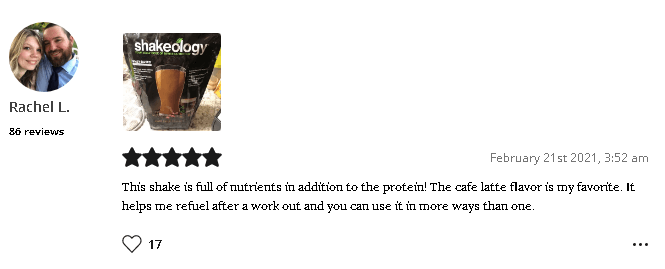
In comparison, Shakeology’s reviews have been consistently good. Most positive reviews speak about how easily it mixes, the variety of flavors on offer and lastly, the nutrient profile. There are a few complaints about the Beachbody Coach program that the company promotes.
In order to get a discount on Shakeology, you have to sign up as a coach. The other option is to buy it at a normal price. To be honest, I didn’t find the normal Shakeology pricing too obscene as it is sometimes made out to be.
Which One Has Better Overall Customer Reviews?
Shakeology all the way. Huel has a bunch of positive reviews on selected sites. But there’s an equal number of negative reviews that mainly have to do with the taste. In fact, even the Trustpilot rating has slowly gone below a perfect 5.
Huel vs Shakeology: Which Is Better?

After having used both these shakes, one for a longer time than the other, I find Shakeology to be a much better option. I’ll explain the reasons for it.
- I am a fitness buff and I am often on a controlled diet to keep my calories in check. Shakeology helps me to curb hunger pangs and keeps me fuller for a much longer time. Huel has a higher protein concentration. But I get my protein from real food and a whey protein shake.
- Shakeology tastes better any day. It’s lighter on my tummy and doesn’t trigger nasty flatulence like Huel does.
- Lastly, I find the nutrient profile in Shakeology to be superior to Huel.
Which Tastes Better?
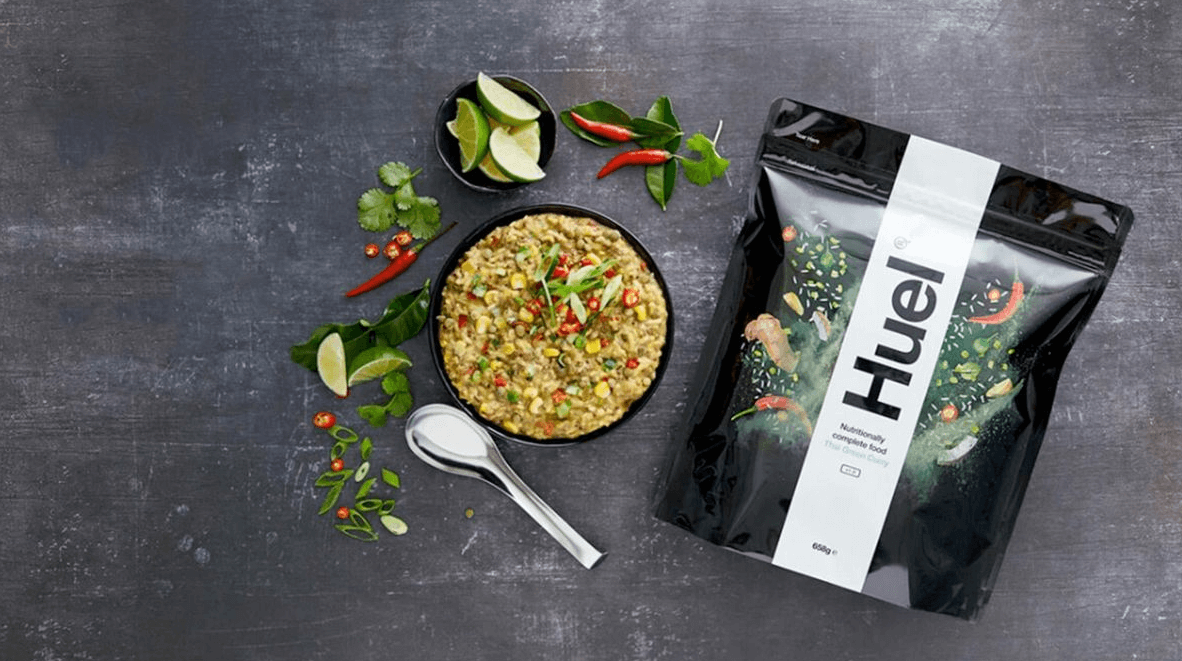
Huel is available in six flavors. That’s Banana, Vanilla, Peanut Butter, Salted Caramel, Caffe Latte, Chocolate, Berry & the original unflavored version that you can top up with the flavor packets.
I found the Vanilla to be too sweet. The Salted Caramel and Banana have a synthetic aftertaste that I absolutely dislike. The Café Latte and Chocolate are the best of the lot. But even those, have a very thick consistency, even when blended with water.
Shakeology offers five primary flavors. That’s Chocolate, Pumpkin, Café Latte, Vanilla and Strawberry. Each flavor is available in Whey and Vegan versions. In addition to the flavors, it also offers boost packets, which is a unique feature. Unlike Huel’s flavor boosts, Shakeology’s boost packets can be used for increasing the caffeine content, amp up the antioxidant concentration, or add more probiotics.
I personally loved the Chocolate, Vanilla and Café Latte flavors. Strawberry and Pumpkin were overly sweet according to me. But if you compare the consistency, Shakeology is a winner all the way. There’s no comparison at all.
How Do They Compare in Terms of Price?
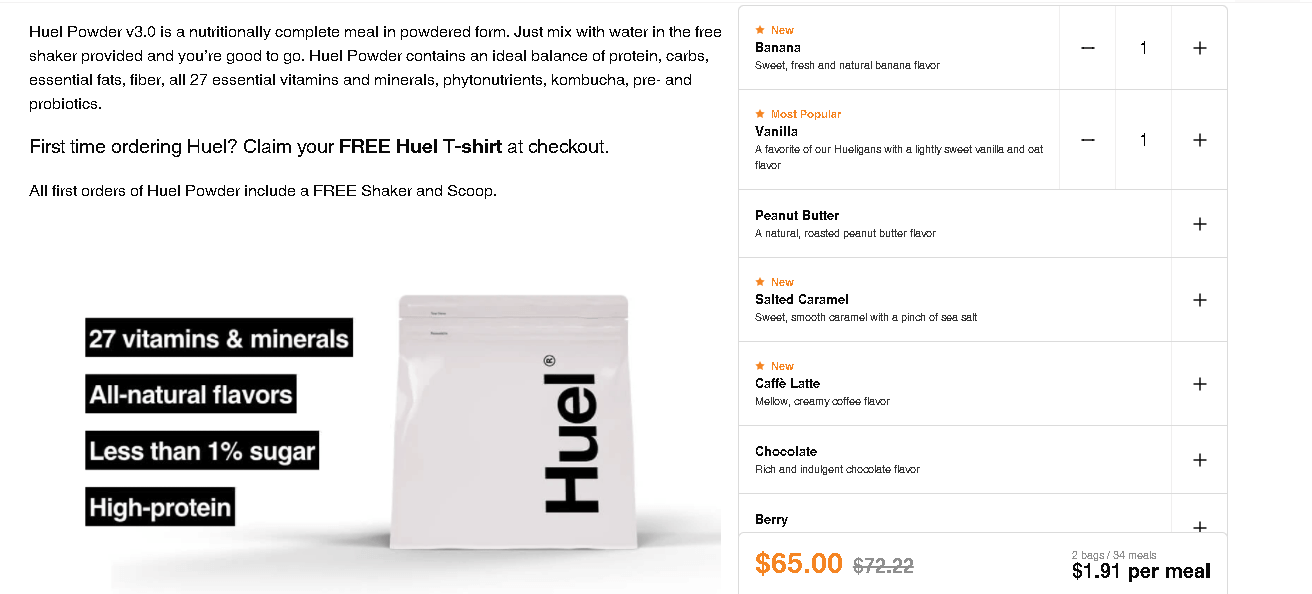
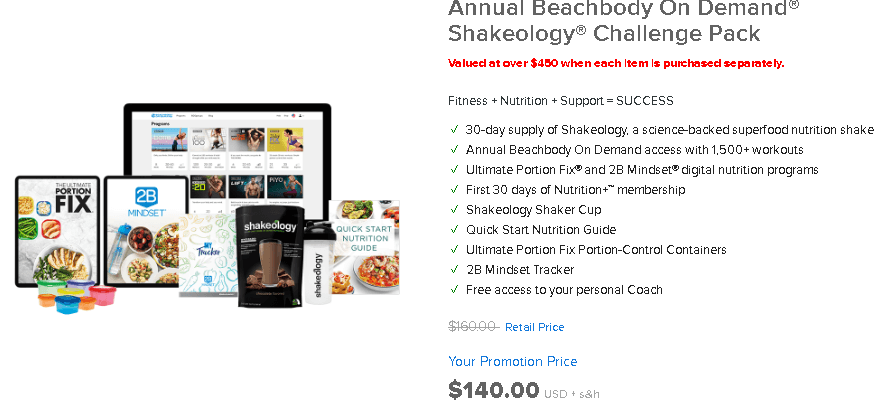
Shakeology costs about $$129.95 USD plus shipping & handling. If you are a registered Beachbody coach, you can get the 30-day supply for $97.46. Assuming that you are not a coach (I am not), each meal is priced at $4.3.
In comparison, Huel is priced at just $2.12 per meal if you buy 34-packets. If you prefer the ready to drink meals, those are slightly expensive at $4.13. But if you are looking at a meal replacement powder, Huel is definitely cheaper.
Is Shakeology Really Worth the Price?
I personally feel that $4.3 is not overpriced for a meal that gives me 60+ nutrients and tastes delicious. That’s subjective, I know. But I wouldn’t mind paying an extra buck or two for quality nutrition.
What Is Most Comparable to Shakeology?
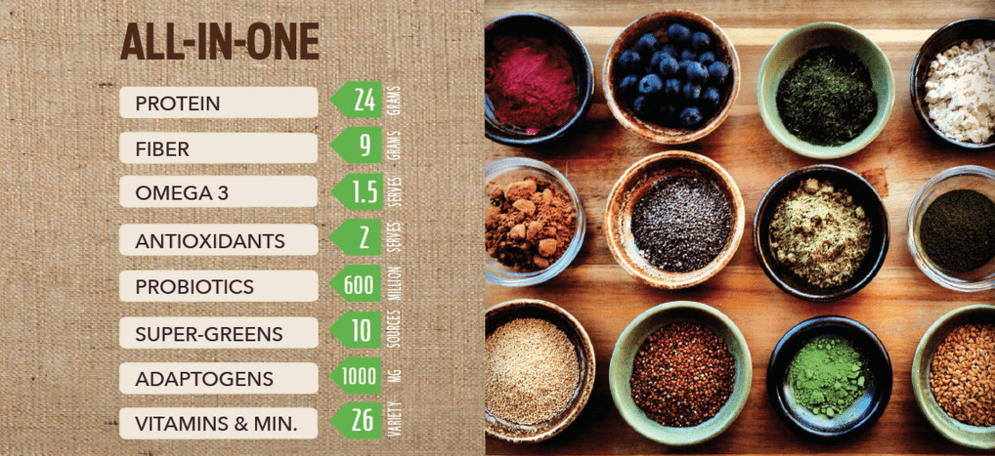
I think that Kachava is the closest option to Shakeology. It has slightly more nutrients and tastes equally good.
Which One Is Better for People Who Want to Burn Fat?
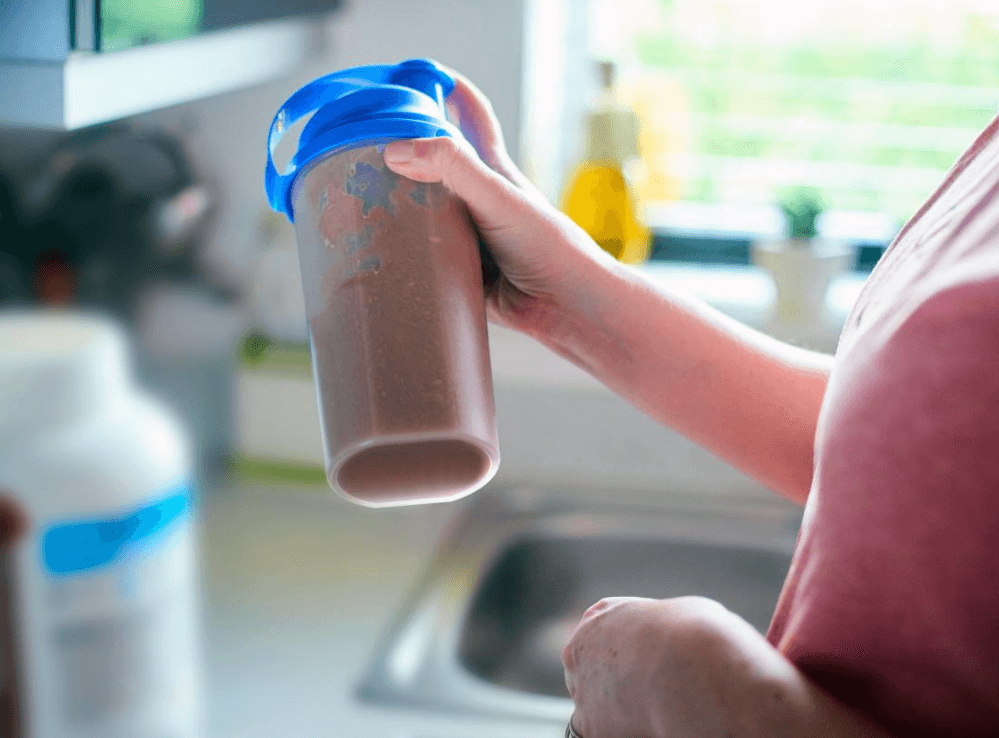
If you are a weight watcher, you’d love Shakeology any day. Huel offers more protein per meal. But it does not keep you full for four to five hours. You have that advantage with Shakeology. Besides, the adaptogens in Shakeology keep your cortisol levels from spiking when you are on a calorie-restricted diet.
Remember, losing weight is about burning more calories than you take in, that could be by limiting or cutting sugar, junk food, and other stuff that you put in your body that do more harm than good.
The only other way to get rid of belly fat and lose weight (the hard way tbh) is through exercise, be it by bodyweight excercises like planks and push-ups, doing squats everyday, or going all out on a combination of calisthenic and weight workouts.
Another thing is simply eating less and Shakeology helps with that without losing out on the nutrients that your body needs. Also exercising increases your metabolism and also helps with losing weight.
Which One Is Better for Gaining Muscles?
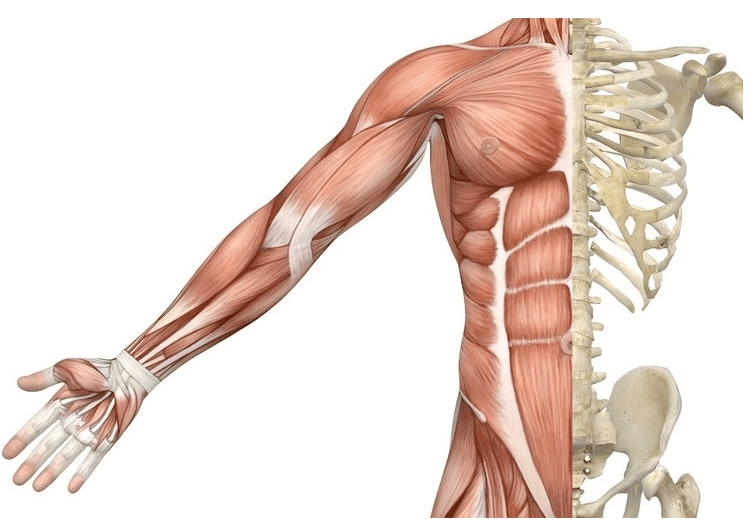
If you are looking to build muscle, maybe you’d prefer Huel for the higher protein concentration. But Shakeology’s protein blend is much better. Besides, who uses a meal replacement as a post workout drink?
That said, if high protein is a deciding factor for you, then go for Huel.
And while at it, if you are going to need a massive energy surge for heavy muscle-building lifts, you can get yourself supplements for this. I would suggest going for natural preworkouts, you know, those beta alanine-free ones that won't make you itchy and hinder your concentration.
Personally, I prefer the 4-gauge pre-workout, since it's not only super powerful, it's also very safe and natural.
Huel vs. Shakeology My Recommendation
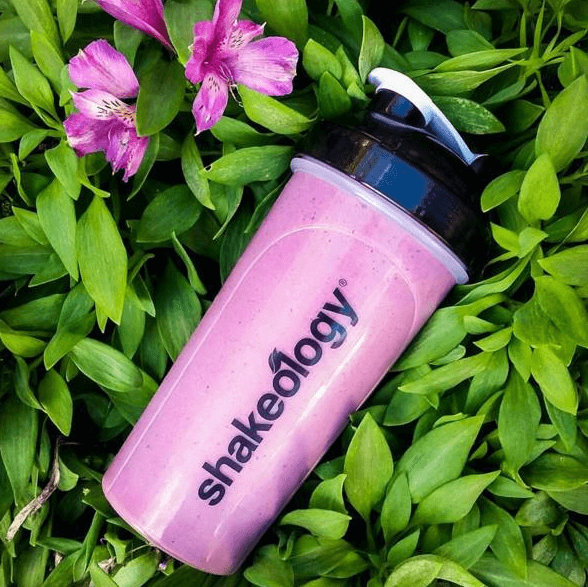
If you’ve been with me so far, then you’d have realized by now that Shakeology is a clear winner. It’s got more nutrients, a better plant based protein blend, better carbohydrate source & a very light consistency.
The only reason why someone might choose Huel over it, is because of the price. But I don’t consider the price while selecting a meal. Do you?
Related Readings:
- How to Measure Fitness Level & Track Your Progress
- The Meal Guide You Need for An Upcoming Road Trip or Travel
- Stationary Bike Vs. Elliptical – Which Is Better for You?
- A Definitive Guide to Meal Replacement Alternatives
- Have you Been Struggling to Lose Weight? Find out How to Without Exercise and Diet
- Do Keto Meal Replacement Shakes Work? Learn How to Prepare Keto Meal Replacement Shakes
References:
- https://huel.com/pages/the-huel-ready-to-drink-formula-explained
- https://www.teambeachbody.com/shop/us/shakeology
- https://www.kachava.com/pages/ingredients



